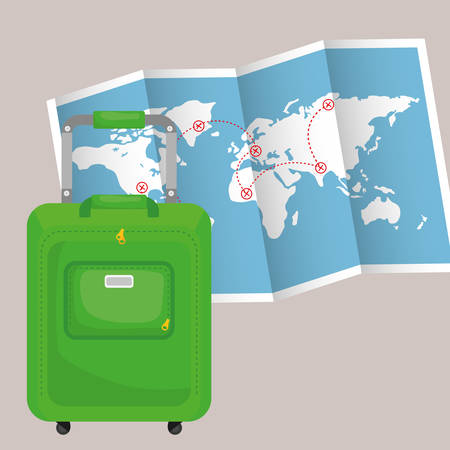Preparing Your Adopted Dog for Travel
Embarking on journeys across the UK with your adopted dog is a rewarding experience, but it’s essential to ensure your four-legged companion feels safe and comfortable throughout. Rescue dogs, in particular, may require extra patience and understanding as they acclimatise to travel, unfamiliar environments, and new routines. By focusing on temperament, comfort, and trust-building, you can pave the way for smoother adventures together.
Understanding Your Dog’s Temperament
Every rescue dog has a unique background and personality. Some may be naturally curious and adaptable, while others could be anxious or wary of change. Take time to observe your dog’s behaviour at home—how do they react to new sounds, people, or changes in routine? This understanding will help you anticipate their needs when travelling and adapt your approach accordingly.
Comfort Essentials for UK Journeys
Ensuring comfort during travel is key. Whether you’re hopping on a train from London to Edinburgh or taking a road trip through the Lake District, pack familiar items such as their favourite blanket or toy. These objects provide reassurance in new settings. Consider the following checklist before setting off:
| Comfort Item | Purpose |
|---|---|
| Blanket/Bed | Familiar scent offers security |
| Toys | Reduces stress and boredom |
| Travel Crate/Harness | Keeps your dog safe during transit |
| Portable Water Bowl | Prevents dehydration on the go |
Building Trust Through Positive Experiences
Your adopted dog’s confidence will grow with every positive outing. Start with short trips around your local area—perhaps a ride on the bus or a stroll in a nearby park—and gradually introduce longer journeys. Reward calm behaviour with treats and gentle praise. Over time, your dog will associate travel with positive experiences rather than anxiety.
By blending patience with practical preparation, you honour your rescue dog’s journey so far and build new memories together across the beautiful landscapes of the UK.
Understanding UK Travel Regulations for Dogs
When travelling or relocating with your adopted dog in the UK, it’s essential to understand the legal requirements and common practices that ensure both your pet’s safety and public wellbeing. The UK holds a reputation for being a nation of animal lovers, but there are specific regulations you must adhere to as a responsible pet owner. Here is an overview of what you need to consider:
Pet Passports and Documentation
If you plan on travelling internationally or returning to the UK, a valid pet passport is vital. Since Brexit, requirements have changed, so always check the latest government guidance before travel. For movement within the UK, while a pet passport isn’t necessary for domestic journeys, up-to-date vaccination records can be required by certain transport services or accommodation providers.
Microchipping Laws
Microchipping is mandatory in England, Scotland, and Wales. All dogs over eight weeks old must be microchipped and registered with the correct contact details. This not only helps reunite lost pets with their families but also supports nationwide efforts to reduce stray populations.
Key Microchipping Requirements
| Requirement | Details |
|---|---|
| Age | Puppies must be microchipped by 8 weeks old |
| Registration | Owners details must be kept up to date in the database |
| Enforcement | Fines may apply if not compliant |
Lead Laws and Public Spaces
The UK has strict rules about dogs in public places. Local authorities may require dogs to be kept on a lead in certain parks, footpaths, and public areas. Its always wise to look out for local signage indicating where leads are compulsory. Failing to comply could result in a fixed penalty notice.
Common Lead Law Guidelines
- Dogs must always be on a lead near roads or livestock.
- Certain beaches have seasonal dog restrictions—check local council websites for details.
- Some urban spaces require leads at all times; rural footpaths may allow off-lead walking if under control.
Public Transport Requirements
The UK is generally dog-friendly when it comes to public transport, but each provider has its own policy. Most trains and buses allow dogs free of charge, provided they are kept on a lead or in an appropriate carrier and do not occupy seats.
Typical Public Transport Policies for Dogs
| Mode of Transport | Main Rules for Dogs |
|---|---|
| National Rail | Up to two dogs per passenger; must be on a lead or in a carrier; not allowed on seats. |
| Buses & Coaches | At driver’s discretion; small dogs usually allowed if controlled. |
| Taxis & Ride-hailing Apps | Mention when booking; assistance dogs always permitted. |
Navigating these regulations with empathy ensures your adopted dog feels secure and welcome wherever life takes you across Britain, while also respecting the needs of other people and animals sharing these communal spaces.

3. Choosing Dog-Friendly Transport and Accommodation
When embarking on a journey or planning a relocation with your adopted dog in the UK, ensuring that every step of your travel is truly dog-friendly is both an act of kindness and a necessity. The UK is renowned for its love of dogs, but not every mode of transport or accommodation rolls out the welcome mat. Here are some heartfelt tips and practical advice to make travelling together smoother and more joyful.
Dog-Friendly Transport Options
Travelling by public transport can be daunting if you’re unsure about pet policies. Luckily, many UK services embrace canine companions:
| Transport Type | Dog Policy | Tips |
|---|---|---|
| Trains (National Rail) | Dogs travel free, maximum two per passenger; must be leashed or in a carrier. | Avoid peak times for space; bring water and treats. |
| Buses (Local/Regional) | Most operators allow dogs at driver’s discretion; usually must sit on floor or lap. | Check policies in advance; carry a blanket for your dog’s comfort. |
| Taxis (Black Cabs, Private Hire) | Assistance dogs always allowed; other dogs at driver’s discretion. | Book ahead and confirm; mention size and temperament. |
Top Tips for Stress-Free Travel
- Always carry waste bags and clean up after your dog.
- Bring familiar items like toys or blankets to help soothe anxiety.
- If using ride-hailing apps, message drivers beforehand to check their policy.
- Plan rest stops on long journeys for comfort breaks and stretches.
Finding Dog-Friendly Places to Stay
The UK offers a warm welcome to four-legged friends in many accommodations. Whether you prefer the charm of a countryside B&B, the convenience of a city hotel, or the freedom of a rental cottage, there’s something for everyone:
| Accommodation Type | Dog Policy Example | Booking Tips |
|---|---|---|
| Hotels | Select chains (e.g., Premier Inn, Travelodge) allow dogs in specific rooms with advance notice; fees may apply. | Email ahead to confirm size/breed limits and amenities like beds or bowls. |
| B&Bs & Guesthouses | Many rural B&Bs welcome dogs, often with garden access. | Use platforms like PetsPyjamas or search “dog-friendly B&B” in your chosen area. |
| Rental Properties (Airbnb, Cottages) | Hosts may set individual pet rules—check house rules before booking. | Filter searches for ‘pet-friendly’ listings; clarify fenced gardens or nearby walks. |
Caring Considerations When Staying Away from Home
- Respect house rules and local wildlife—always keep your dog under control in unfamiliar areas.
- If leaving your dog unattended briefly, ensure it is safe and not causing distress or disturbance.
- Bring essentials: food, bowls, bedding, lead, ID tag, and any medication.
- A quick wipe-down after muddy walks keeps accommodations welcoming for future guests.
Travelling across the UK with your adopted dog can be an uplifting experience that strengthens your bond while discovering new corners of this beautiful country. By planning ahead and choosing truly dog-friendly options, you’re not just making life easier—you’re honouring the trust your rescue companion has placed in you as their forever family.
4. Supporting Your Dog’s Wellbeing on the Move
Relocating or travelling with your adopted dog in the UK brings moments of excitement and challenge alike. As guardians, it is our responsibility to nurture their sense of safety throughout the journey. Drawing from British pet care wisdom, here are practical approaches to ease travel anxiety, uphold comforting routines, and help your furry friend feel at home wherever you go.
Practical Ways to Ease Travel Anxiety
Dogs, particularly those from rescue backgrounds, may become unsettled during travel. The familiar sounds of trains or motorway traffic can be overwhelming. To support them:
- Familiar Scents: Bring along your dog’s favourite blanket or toy, imbued with home scents to offer reassurance.
- Gradual Acclimatisation: If travelling by car or public transport, start with short trips to build positive associations.
- Pheromone Sprays: Consider using calming pheromone sprays recommended by UK vets for added comfort.
Maintaining Routines Amid Change
A steadfast routine provides stability in unfamiliar settings. British pet lovers often emphasise the importance of predictability for canine wellbeing. Keep meal times, walks, and play sessions as close to your usual schedule as possible. Here’s a simple table to help maintain consistency on the move:
| Routine Element | Usual Time | On the Move |
|---|---|---|
| Meals | 8am / 6pm | Pack food & serve at regular intervals |
| Walks | 7am / 5pm | Plan stops at service stations or parks |
| Playtime | Noon / Evening | Bring toys for hotel or outdoor play |
Ensuring Security in New Environments
The hustle and bustle of a new town – perhaps Brighton’s seaside promenade or a quiet Cotswolds village – can unsettle even the most adventurous dog. Secure your dog with a well-fitted harness and lead, double-check garden fences at new accommodations, and always update their microchip details with your latest address.
British Tips for Settling In
- Create a dedicated ‘safe space’ in each new place you stay – a quiet corner with their bed and familiar items.
- If staying long-term, introduce your dog to local parks gradually and let them sniff their surroundings at their own pace.
A Gentle Reminder from the UK Community
The UK’s culture of animal welfare encourages patience and compassion; remember that every dog adjusts differently. Reach out to local pet groups for advice and camaraderie as you embark on this journey together.
5. Exploring Local Community and Green Spaces
One of the greatest joys of travelling or relocating with your adopted dog in the UK is discovering the wealth of dog-friendly parks, countryside trails, and vibrant community meet-ups. These experiences not only enrich your dogs life but also open doors for you to forge meaningful connections within local pet-loving communities.
Parks and Countryside Walks
The UK is renowned for its stunning green spaces, many of which welcome dogs with open arms. Whether you’re strolling through historic city parks or rambling across rolling hills, these environments provide safe and stimulating adventures for your canine companion. Here are some notable spots:
Region |
Popular Park/Walk |
Features |
|---|---|---|
| London | Hampstead Heath | Expansive woodlands, off-lead areas, dog-friendly ponds |
| North West England | Lake District National Park | Lakeside paths, mountainous hikes, scenic picnic spots |
| Scotland | Holyrood Park, Edinburgh | Historic landscapes, Arthur’s Seat hike, panoramic views |
| South West England | Durdle Door Coastal Walks | Dramatic coastline, sandy beaches, accessible trails |
| Wales | Bute Park, Cardiff | River walks, botanical gardens, open fields for play |
Community Meet-Ups and Socialisation Opportunities
Beyond solo adventures, local dog meet-ups offer a wonderful way to help your adopted dog build confidence and social skills while connecting you with other caring owners. Many towns host regular “Doggy Socials,” breed-specific gatherings, or charity-led walkathons where rescue stories are celebrated and advice shared. Check community noticeboards or platforms like Meetup and Facebook Groups to find events near you.
The Benefits of Joining Local Pet Communities:
- Support Network: Share tips on training, health care, and local resources.
- Cultural Integration: Learn about British pet etiquette and traditions.
- Shared Activities: Group walks and picnics foster belonging for both pets and people.
- Advocacy: Participate in campaigns supporting animal welfare and responsible ownership.
A Note on Etiquette:
Please remember to respect leash rules in public spaces and always clean up after your dog—these small acts help ensure all adopted dogs continue to be welcomed across the UK’s treasured green spaces.
6. Relocation: Settling Your Adopted Dog in a New Home
Moving to a new home is a significant milestone, especially for an adopted dog who may already have experienced upheaval. In the UK, community spirit and neighbourly kindness can make the transition smoother, but your gentle guidance is essential to help your canine companion feel secure and settled.
A Gentle Start: Familiarity and Routine
Begin by creating a familiar environment—bring along your dog’s favourite bed, toys, and blankets to infuse your new space with comforting scents. Establish a routine quickly; dogs thrive on predictability, so regular walks, feeding times, and quiet moments together help ease anxiety.
Introducing Local Veterinary Care
Your dog’s health and wellbeing are paramount. Register with a local veterinary practice as soon as possible. Many UK vets offer ‘welcome’ consultations for newly relocated pets, which include health checks and advice tailored to the area’s specific needs (such as parasite prevention common in your region).
| Step | What To Do |
|---|---|
| Find a Vet | Ask neighbours or check the Royal College of Veterinary Surgeons (RCVS) website for reputable practices nearby. |
| Register Your Dog | Provide adoption documents and up-to-date medical history. |
| First Visit | Schedule an initial check-up, discuss microchip details, vaccinations, and local pet health risks. |
Integrating into Neighbourhood Life
The UK’s parks, commons, and green spaces are perfect for gentle exploration. Take time to walk your dog on-lead around the neighbourhood, allowing them to sniff and observe at their own pace. This not only builds confidence but also helps establish familiarity with new sights and sounds. Remember to adhere to local dog-walking etiquette—always clean up after your pet and be mindful of leash rules.
Building Connections
Connecting with fellow dog owners is a treasured part of British community life. Consider joining local ‘dog walking’ groups or attending charity events organised by rescue shelters. These social opportunities foster friendships—for both you and your dog—and can be invaluable sources of support and advice.
A Final Thought: Patience and Compassion
Your adopted dog may need weeks or even months to fully relax in their new surroundings. Approach each day with patience and compassion, celebrating small victories—be it a wagging tail at the door or a peaceful nap by the fire. In time, your gentle care will transform unfamiliar territory into home—a place of safety, belonging, and love.


